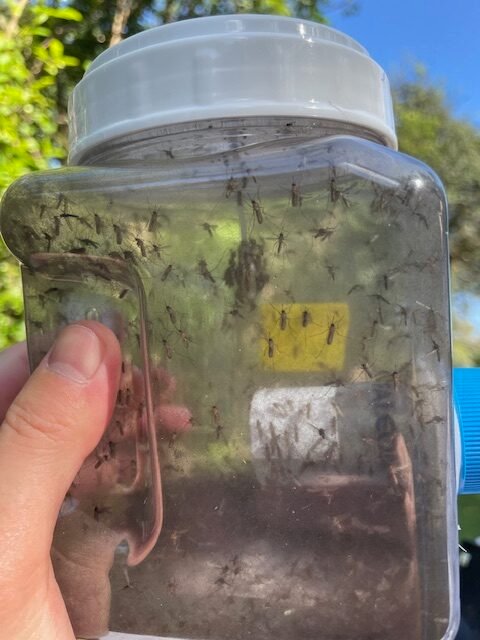Defining Mosquito Surveillance
Mosquito surveillance is the systematic monitoring of mosquito populations to:
- Identify species present in a region
- Track seasonal activity and population density
- Detect mosquito-borne pathogens like West Nile virus, dengue, Zika, and malaria
- Assess the effectiveness of control measures over time
Surveillance isn’t just about catching mosquitoes — it’s about collecting actionable data that protects public health.
Why Surveillance is Crucial for Public Health
Without accurate population and disease data, vector control programs are forced to act reactively. High-quality surveillance:
- Prevents outbreaks by detecting threats early
- Targets control measures to the right species, locations, and times
- Saves costs by optimizing pesticide use and minimizing environmental impact
- Supports research into mosquito behavior, ecology, and resistance
Types of Mosquito Surveillance Equipment
At Entovate, we manufacture and supply a full range of tools used in mosquito monitoring programs worldwide. https://Entovate.com/
1. Resting Traps
- Mimic natural rest sites for blood-fed females
- Provide clean, live specimens for pathogen testing
Internal Link: [Mosquito Resting Traps] (link to product)
2. Gravid Traps
- Attract females ready to lay eggs using infusions
- Most effective for detecting virus-positive Culex
Internal Link: [Entovate Gravid Traps] (link to product)
3. Light Traps
- Use light and CO₂ to attract host-seeking mosquitoes
- Gather multiple species for diversity analysis
Internal Link: [Mosquito Light Traps] (link to product)
4. Field Aspirators
- Handheld devices to collect mosquitoes from vegetation, shelters, or indoor sites
Internal Link: [Field Aspirators] (link to product)
Choosing the Right Trap for Your Goals
- Virus Surveillance: Focus on gravid traps
- Species Diversity Studies: Use light traps in multiple habitats
- Behavioral Observations: Deploy resting traps near breeding areas
- Rapid Response: Pair aspirators with targeted light trap placements
In many programs, multiple trap types are used together for comprehensive coverage.
Building a Mosquito Monitoring Program
- Plan — Identify target species and objectives
- Deploy — Use appropriate traps in representative habitats
- Collect — Gather and log specimens regularly
- Analyze — Identify species and test for pathogens
- Respond — Adjust control methods based on findings
How Entovate Supports Surveillance Efforts https://entovate.com/
From Jacksonville, Florida, Entovate supplies research-grade mosquito surveillance equipment to agencies, labs, and universities.
All products are designed for durability, accuracy, and ease of use in challenging field conditions.
[Explore Our Full Mosquito Surveillance Equipment Line] (link to products page)
Key Takeaway
Mosquito surveillance is the foundation of effective vector control. Without it, interventions are less targeted and often less effective.
Using reliable traps and aspirators — like those from Entovate — ensures the data you collect is accurate, timely, and actionable.
